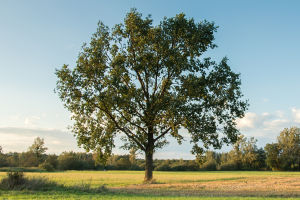Have you ever been amazed at how quickly bamboo grows? It's not just an illusion. Bamboo holds the title of the fastest-growing plant in the world, capable of growing up to 35 inches in a single day.
That's like watching a plant grow in real-time. But bamboo's incredible speed is just the start of its fascinating story. Let's dive into why this plant is so special.
The Secret Behind Bamboo's Speed
So, what makes bamboo grow so quickly? The key is its unique structure. Unlike most plants that grow from the top down, bamboo grows through a system of rhizomes (underground stems) that expand horizontally. As the rhizomes spread out, new shoots emerge from the ground, and these shoots grow rapidly. This growth is fueled by the plant's ability to quickly transport nutrients and water from the soil to its rapidly developing stems.
Additionally, bamboo's hollow structure allows it to grow taller and thinner without having to support a heavy trunk like a tree. This lightweight design enables bamboo to stretch upwards at an astonishing rate.
- Actionable Example: If you're looking to add fast-growing greenery to your garden or backyard, consider planting bamboo. Not only will it provide you with quick privacy screens or shade, but it will also add a striking, tropical feel to your outdoor space. Just be sure to manage its growth, as bamboo can spread quickly.
Why Bamboo Grows So Fast?
Bamboo's rapid growth isn't just due to its internal structure. It also benefits from specific environmental conditions. Bamboo thrives in tropical and subtropical climates where there's ample sunlight and rainfall. These conditions provide the perfect balance of moisture and warmth for bamboo to reach its full growth potential.
Moreover, bamboo's growth is closely tied to its energy-efficient lifestyle. The plant doesn't require much energy to grow its tall stalks. Its energy comes from photosynthesis, and with bamboo's large leaves, it can gather plenty of sunlight to fuel its rapid growth. Because it's highly efficient, bamboo can maintain its speed without depleting the soil too quickly, unlike some fast-growing trees or plants.
- Actionable Example: If you're thinking of growing bamboo, pick a sunny spot with well-drained soil. Bamboo does best with regular watering and thrives in areas where rainfall is consistent. Keep in mind that bamboo can grow in pots, but it needs space to stretch out, so make sure to choose a large container if you're going for that option.
Bamboo's Environmental Benefits
Beyond its impressive speed, bamboo plays a critical role in the environment. One of bamboo's standout qualities is its ability to absorb carbon dioxide. In fact, bamboo can absorb more carbon than an equivalent mass of hardwood trees. This makes bamboo a key player in combating climate change by helping to reduce greenhouse gases.
Additionally, bamboo is an excellent plant for preventing soil erosion. Its strong, deep root system stabilizes the soil, preventing it from washing away during heavy rains. This quality makes bamboo particularly useful in landscaping and for maintaining healthy soil in areas prone to erosion.
- Actionable Example: For those looking to make their gardening or landscaping efforts more eco-friendly, bamboo is a great option. Its fast growth and carbon-absorbing properties make it a sustainable addition to any garden or yard. Plus, you can use bamboo for a variety of other purposes, from fences to furniture.
Bamboo in Everyday Life
Bamboo isn't just a marvel in nature—it has countless uses in everyday life. For centuries, bamboo has been used for everything from construction materials to clothing. In many parts of the world, bamboo is woven into textiles, used to build homes, and even made into paper. It's incredibly versatile, durable, and sustainable.
In the realm of construction, bamboo is prized for its strength-to-weight ratio. Despite being lightweight, it's strong enough to replace traditional wood in many applications. It's now being used in architecture to create sustainable, eco-friendly buildings. Bamboo's natural beauty and flexibility also make it a popular material for furniture and decor.
- Actionable Example: If you're seeking eco-friendly alternatives to traditional materials in your home, consider integrating bamboo into your design. Bamboo furniture, flooring, and even kitchenware are durable, stylish, and sustainable options that don't compromise on functionality.
The Future of Bamboo
Given bamboo's speed, sustainability, and versatility, it's no wonder that it's being heralded as one of the future's most important resources. From textiles to building materials, the world is waking up to bamboo's potential. As demand for sustainable products continues to grow, bamboo is expected to play an even larger role in industries worldwide.
In the coming years, it's likely that we'll see more widespread adoption of bamboo as an alternative to wood, plastic, and even concrete. Its rapid growth and minimal environmental footprint make it a key player in the push toward more sustainable practices.
- Actionable Example: If you're a business owner or someone interested in sustainability, consider switching to bamboo-based products. Whether it's in your home, workplace, or personal life, choosing bamboo over traditional materials helps reduce your carbon footprint and supports sustainable industries.
Conclusion: Bamboo's Amazing Potential
Bamboo's rapid growth, environmental benefits, and versatility make it one of nature's most remarkable plants. Whether you're looking to add some green to your space, make your garden more eco-friendly, or support sustainable industries, bamboo is a plant that offers endless possibilities.
Next time you see a bamboo stalk, remember that it's not just a fast-growing plant—it's a symbol of nature's incredible adaptability and an essential resource for the future.


